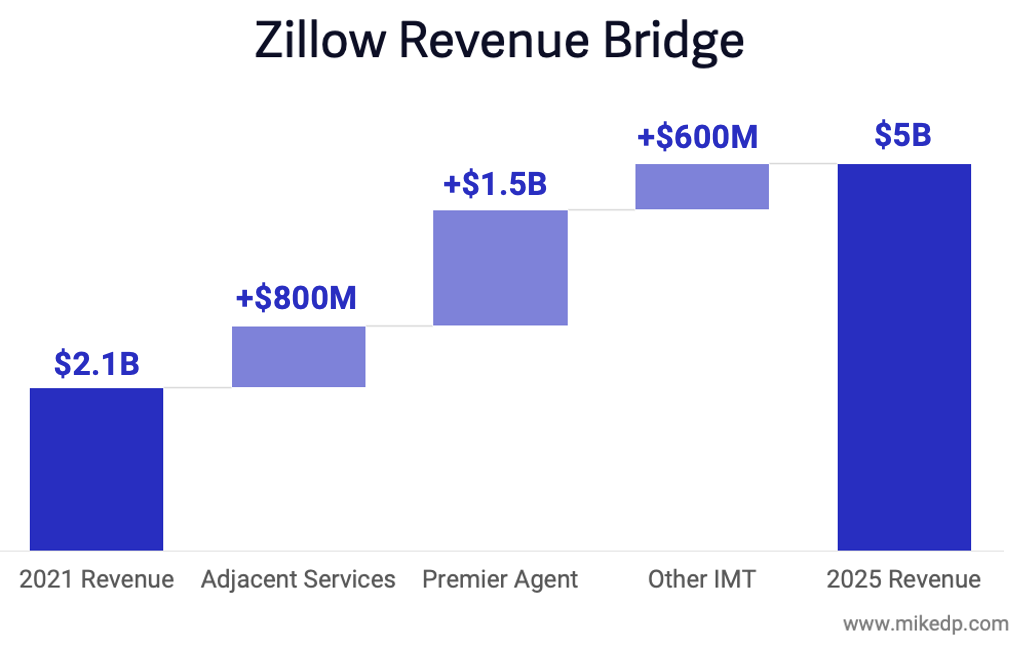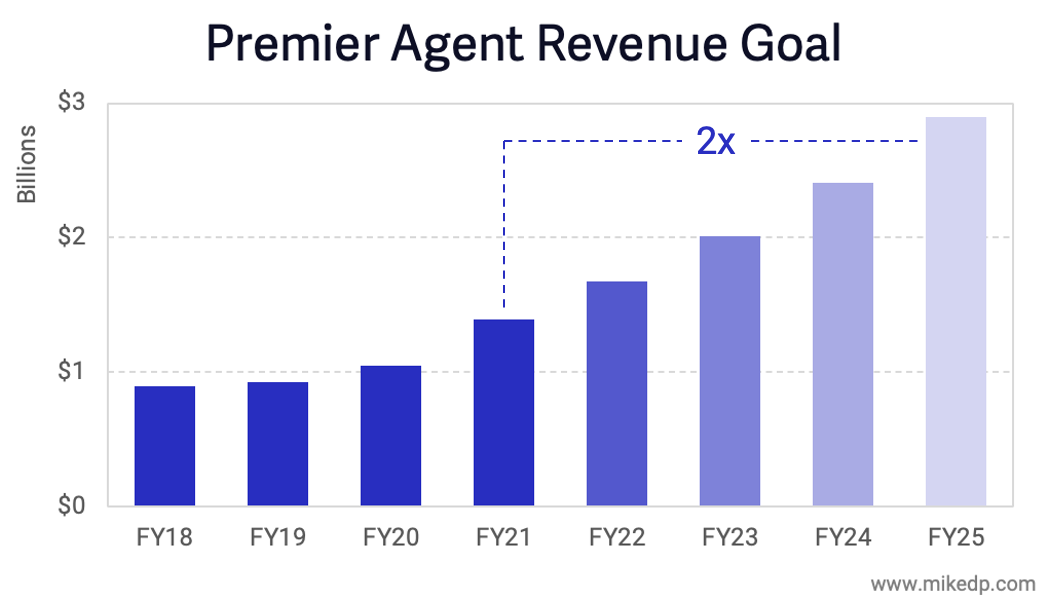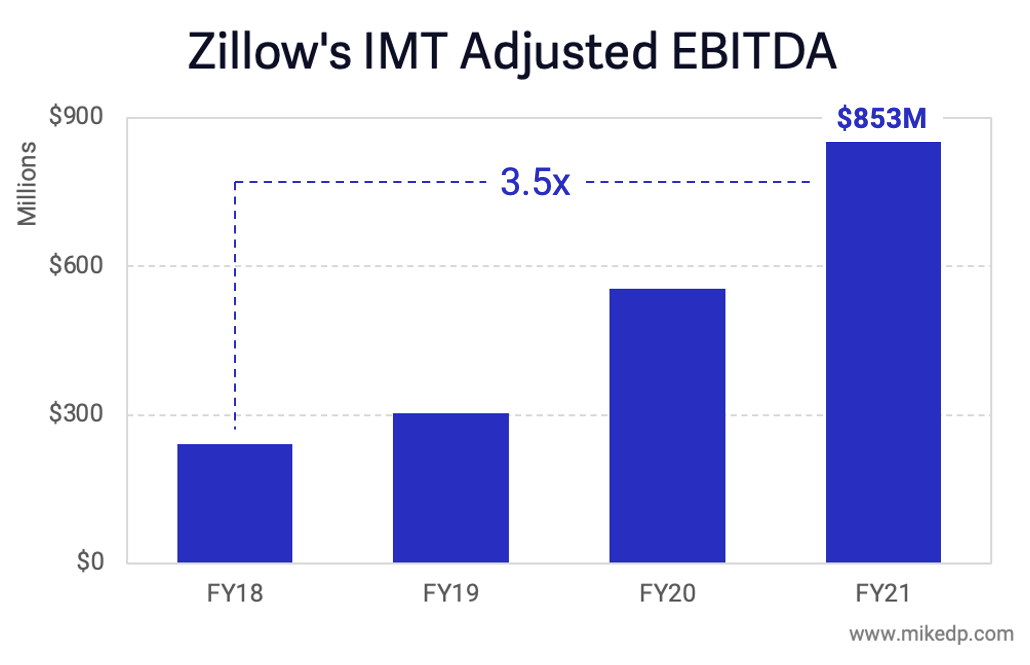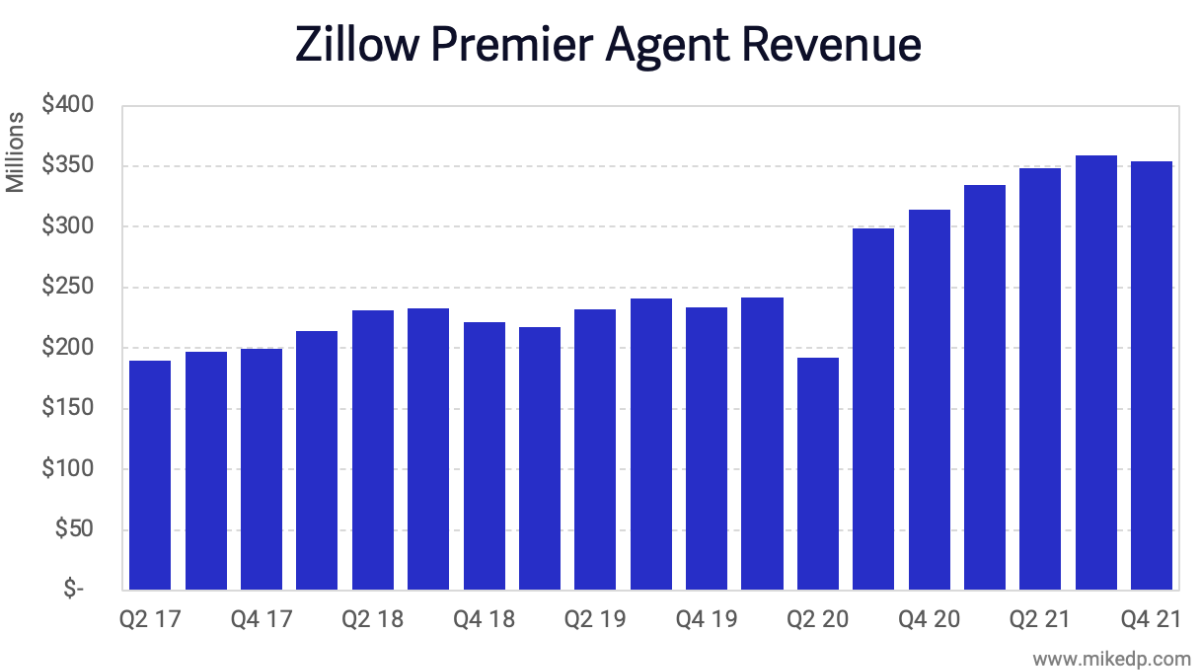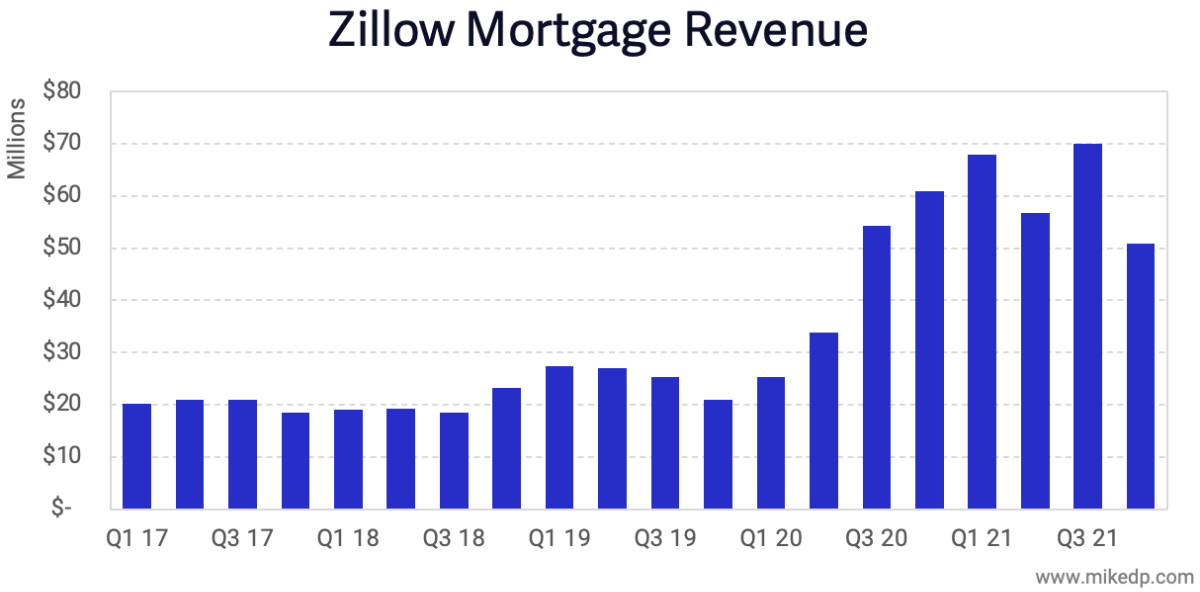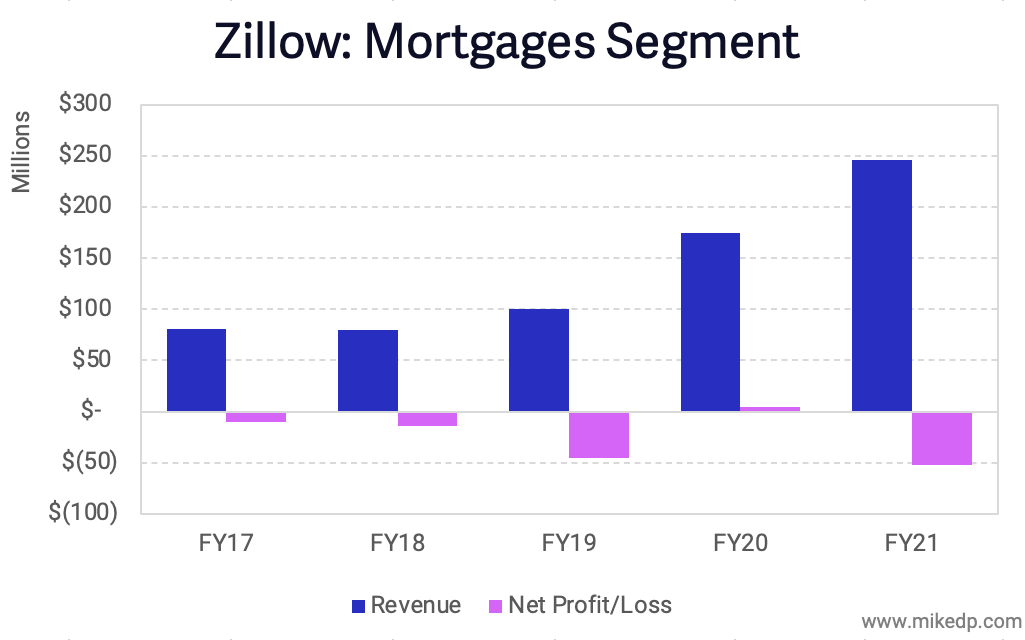Zillow 3.0: Back to Basics
/Zillow's new strategy has the company going back to its roots, doubling down on agent lead gen, and extracting more revenue from real estate commissions.
Go deeper: The biggest growth driver is Zillow's premier agent business, which it plans to double by 2025. That's an additional $1.5 billion paid by real estate agents to Zillow.
These are aggressive targets and a step-change from past growth rates, which reflect the audaciousness of the strategy -- and a clear signal of intent.
By the numbers: Zillow's core business is stronger, and more profitable, than ever, giving the company a rock-solid foundation and plenty of cash for future growth.
Earnings in Zillow's IMT business, which includes premier agent, more than tripled over the past three years. It's the profitable engine room of Zillow 3.0.
Premier Agent saw an acceleration in revenue growth driven by unprecedented demand during the pandemic.
But quarterly revenue growth just dropped for the first time in 18 months. The pandemic bump won't continue indefinitely.
Zillow Home Loans, its mortgage play, is another key component of Zillow 3.0.
Like Premier Agent, revenue surged during the pandemic, but has slowed down significantly in the most recent quarter.
The pressing issue is that Zillow Home Loans is consistently unprofitable (net loss of $50 million in FY21).
Zillow is managing to lose a lot of money in a business that others can operate quite profitably.
The best case is that Zillow is smartly investing for the future. The worst case is that Zillow Home Loans is another Zillow Offers, beset by executional issues and overextension.
The bottom line: Zillow's 3.0 plan is centered around creating more transactions for premier agents and selling consumers adjacent services (mortgage and title).
Creating more transactions comes down to connecting consumers and agents in such a way that Zillow earns a commission.
That's a huge inflow of new business for premier agents, and it comes at the expense of non-premier agents.

